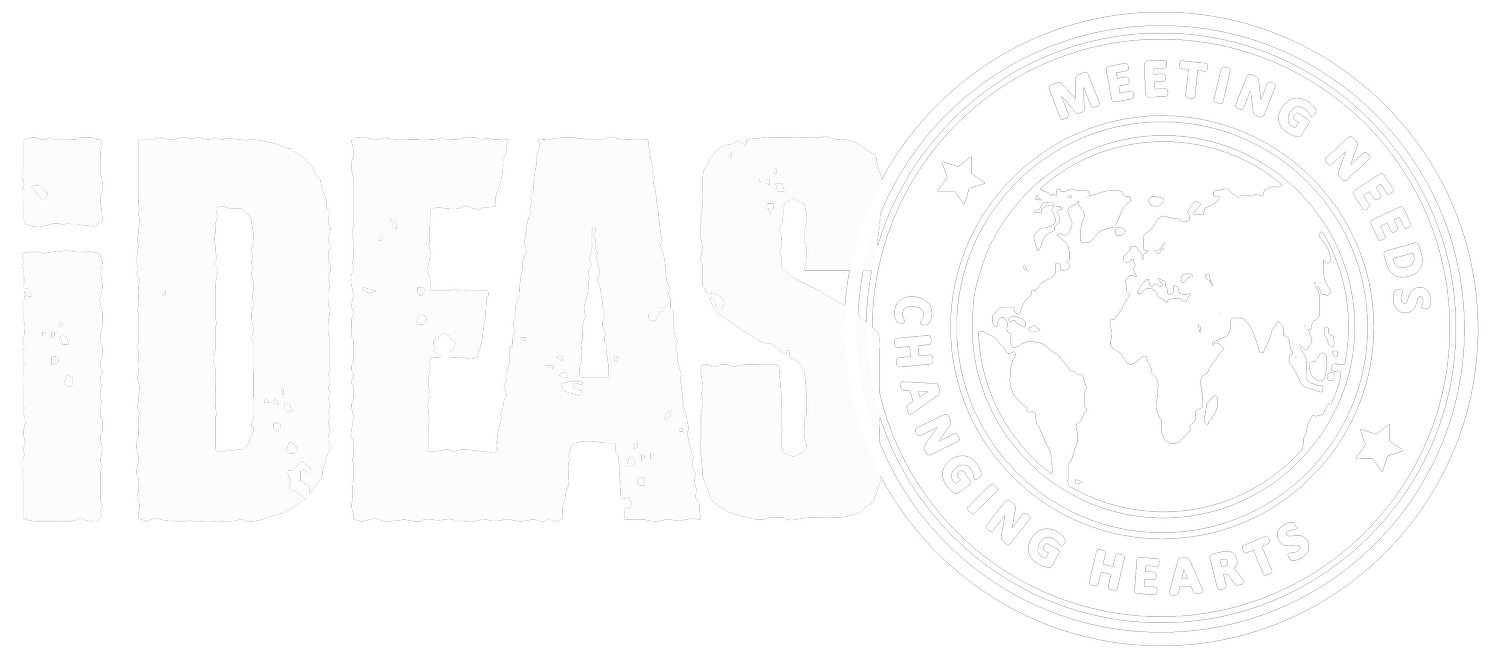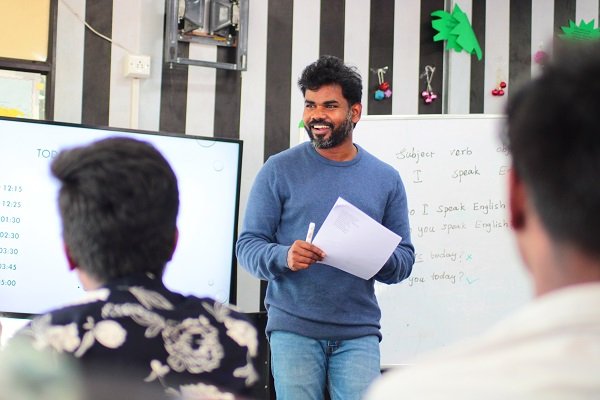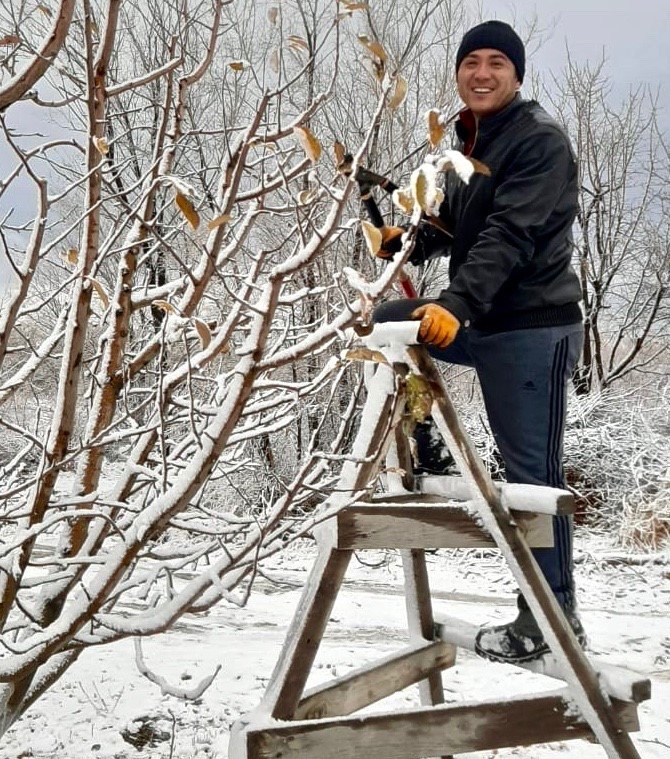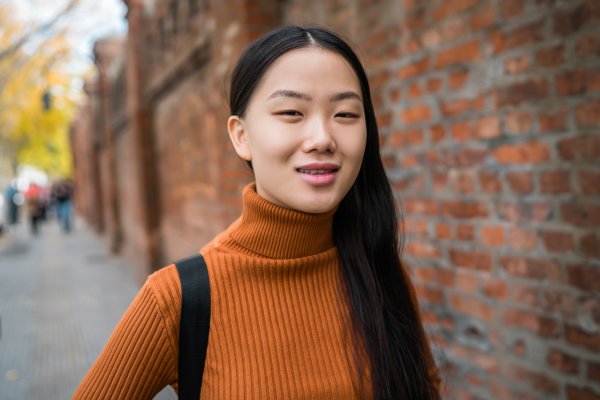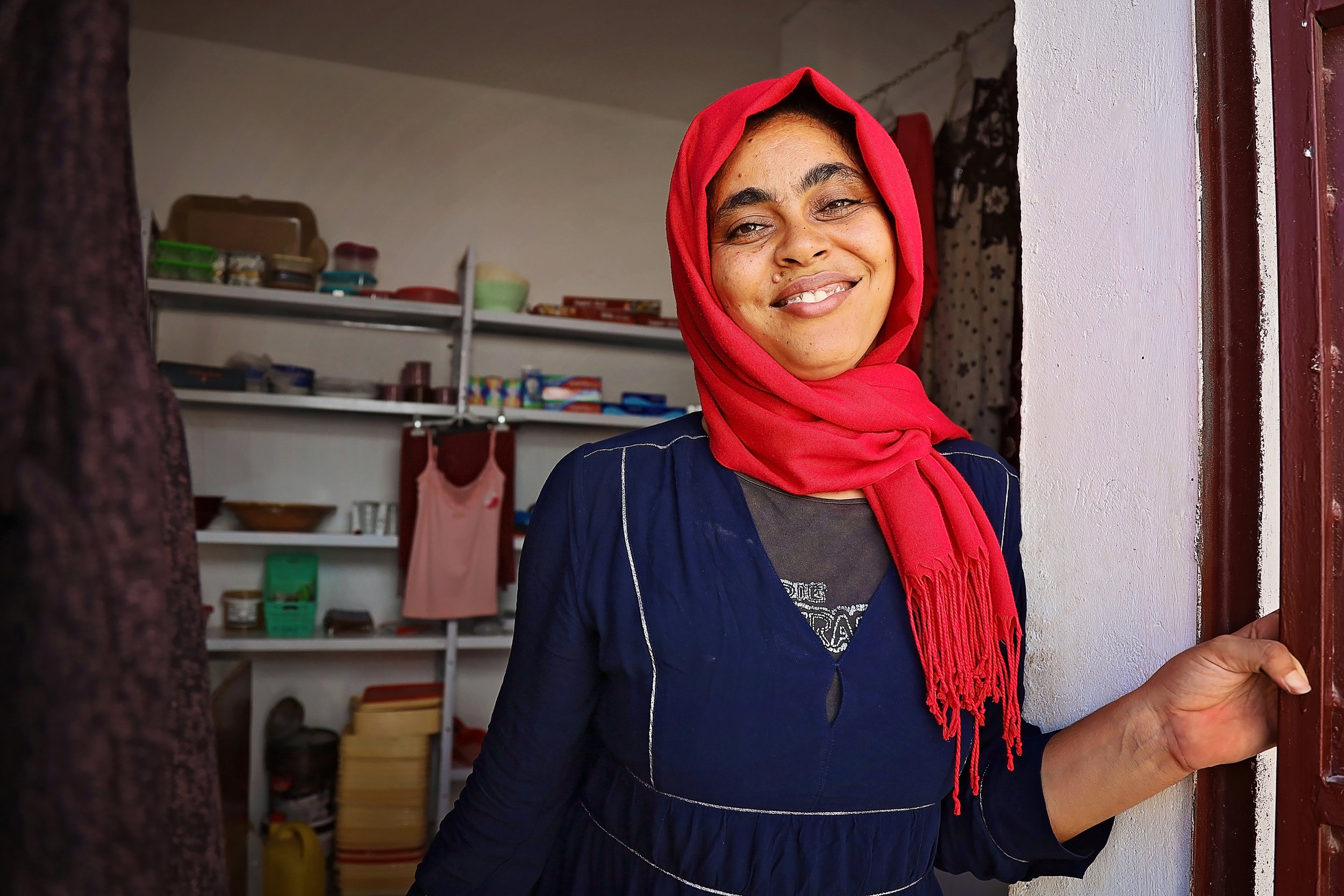
STRONGER THAN I LOOK
MEET KHADIJA
Stronger than I look in Tunisia.
ACT / Tunisia
If I asked you to envision the strongest person you know, what would that person look like? My concept of what strength looks like was recently challenged by a visit to a group of our project beneficiaries in the south of Tunisia. The young adults in the group are part of an advocacy network for people with physical disabilities.
With erratic sidewalks and no curb cuts, life is not easy for people in Tunisia with limited mobility. People using wheelchairs often have to rely on the help of those passing by to be lifted on or off curbs, buses, and trains. Even businesses that claim to be accessible rarely are—with ramps too steep for wheelchairs to mount them, or steps to the bathrooms.
Most members of the advocacy group were unable to attend traditional schooling because their local schools were not accessible to people with limited mobility. They’ve all been told by their families and neighbors that they will never be truly happy in life because they will never experience marriage or parenthood—not because they are physically or legally unable, but because the society in which they live doesn’t consider them capable or desirable.
This group of young people participated in a series of trainings offered by one of our partners in the region to help people with disabilities build their sense of autonomy, self-worth, and self-confidence. The project also encouraged these young people to develop an online network for mutual support and advocacy.
One member, Khadija,* told me that the difference between who she is now and who she was before joining this group is like the difference between day and night. Khadija shared,
“For the first 20 years of my life I almost never left my home or said more than ‘hello’ and ‘goodbye’ to people because I was so ashamed of my cerebral palsy. I never talked. Never. Now, you can’t get me to stop talking!””
Through the confidence and training she gained by participating in our partner’s projects she has become a small business owner, running a convenience store out of an annex built on to her family’s home.
With tears welling up in her eyes, Khadija told me that she now sees it as her mission in life to make sure that no other children lose so many years of their life to shame. Then she immediately started telling me about a young boy she knows who is blind, and her desire to see him and his family connected to supportive services as soon as possible.
Then she pitched me on services she hopes to provide as a consultant to some of our other projects. I smiled as I realized that Khadija has become a force to be reckoned with!
Our projects with people with disabilities are designed not only to help people get jobs and increase accessibility, but also to intentionally challenge worldviews that treat people with disabilities as unworthy of love, dignity, or inclusion.
By living out our belief that all people are “fearfully and wonderfully made” in the image of a great God, our project staff seek to inspire change in individual hearts and in the society as a whole.
Sitting in awe across the table from this inspiring group of young people, I was reminded how God’s power is often most evident in places where the world only sees weakness.
This group is stronger than they look, and I am excited to see the change that they will bring about through their collective passion and efforts.
About the Author
Julia is an IDEAS Associate and moved to Tunisia in 2021. She oversees community needs assessments, project development and implementation, local partner relationships, and impact measurement with ACT.
*Khadija's name has been changed out of respect for confidentiality.
MORE STORIES
Helping fellow Dalits find love and respect
Meet Reuben.
“…I was a normal kid growing up with everything I needed for a comfortable life. I didn’t know I was a Dalit. When I was 12 years old, I saw my mother kill my father. From then on, my brother and I suffered trauma and loss. We were called the children of criminals, as my mother went to prison…”
Meet Rashid.
“…I grew up in a small farming community in rural Kazakhstan. When I was six years old, the Soviet Union collapsed. During my childhood, my family lived in poverty, trying to eke out a living growing potatoes and tending fruit trees.…”
Growing food for his community in Kazahkstan
From hopelessness to dignity
Meet Alma.
Alma was born in Guatemala with a disability called spina bifida. Unable to walk, she spent the first 14 years of her life isolated, locked in a room, confined to a bed or the floor. Her mother said she was a mistake. Her father said she was not his daughter. Alma wanted to go to school and have friends, but her disability made that impossible.
From family tragedy to transformation
Meet Wanmay.
“When I was 13 years old, tragedy struck my family. My mom was hit by a car and seriously injured. I needed to take a year off from school to care for her while she was in the hospital. I knew she needed me, and my family was the most important thing. My education would have to wait, and I hoped one day I could return to school and finish my education…”
Together, let’s help people + communities flourish!
LET’S TELL MORE STORIES LIKE THESE
Your gift empowers IDEAS to bring lasting hope and remove barriers so that people around the world can experience the fullness of their God-given dignity!
Together, we can work to provide marginalized individuals and vulnerable communities the opportunity to live flourishing, abundant lives.
